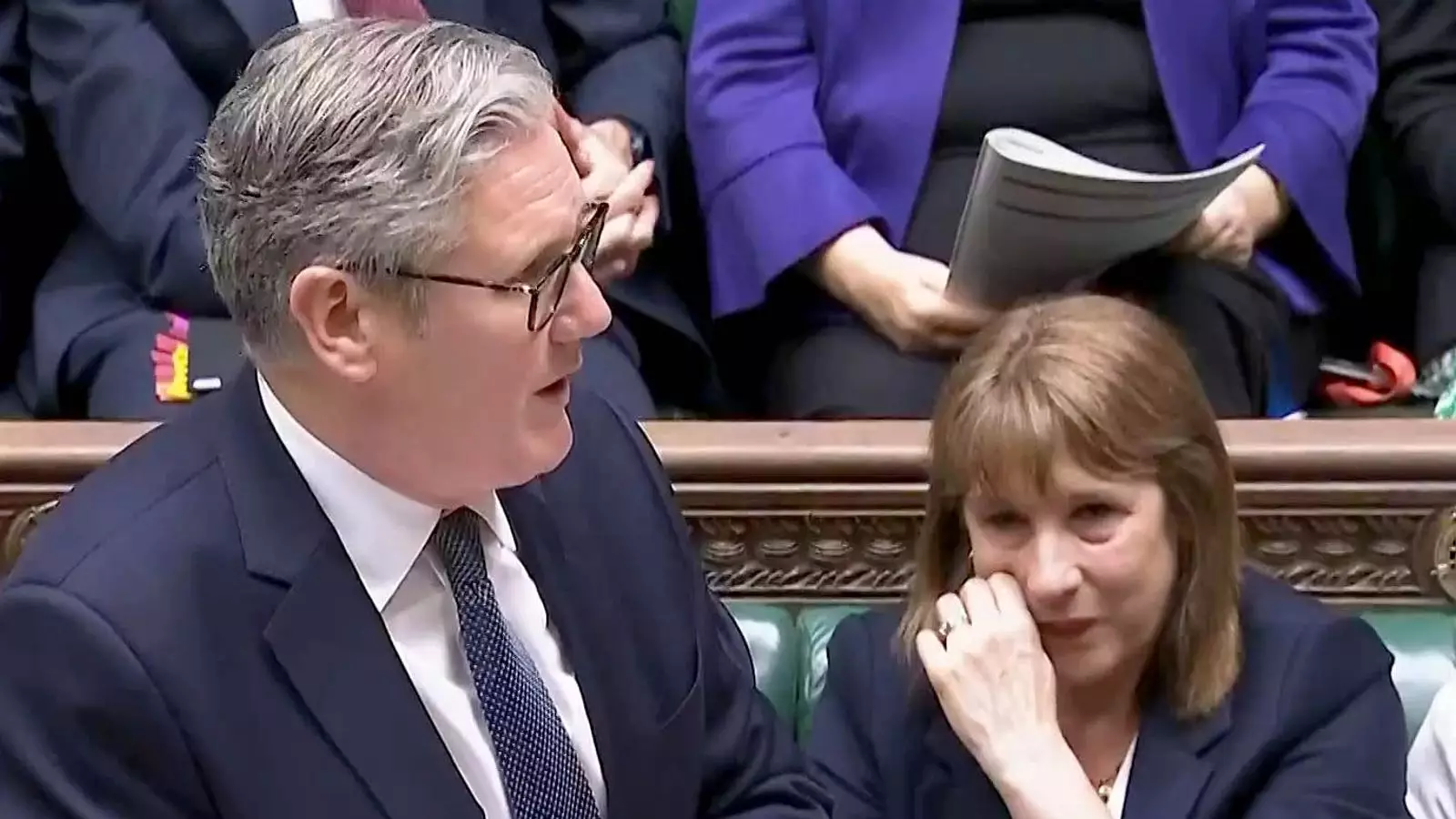In the unpredictable landscape of modern politics, stability has become a fleeting concept, especially for leaders caught in the crossfire of internal dissent and external opposition. Recent whispers within political circles reveal grave concerns about Prime Minister Rishi Sunak’s tenure, suggesting that continued government performance issues might soon spell the end of his leadership. Such a bleak prognosis is not merely the result of external judgment but stems from a complex web of internal dissatisfaction, strategic miscalculations, and shifting voter allegiances.
The fluctuating fortunes of Labour and other political entities underscore the volatility that now defines the UK political arena. The Labour Party’s recent struggles in Wales, London, and Scotland serve as cautionary tales, illustrating how electoral performance can swiftly turn into a vote of no confidence, not just from the electorate but from within the party ranks. These internal fissures threaten to destabilize even the most ostensibly unified opposition, revealing the fragile fragility of political cohesion when faced with mounting pressure and unanticipated challenges.
The emerging narrative suggests that Labour leans perilously close to its own crossroads; a poor showing in the upcoming elections could accelerate calls for leadership change. This is not mere speculation but a reflection of the widespread dissatisfaction voiced by party insiders and political analysts alike. Such discontent signals a critical juncture where leadership competency and strategic agility must be judged with utmost rigor. When political parties and their leaders are on the brink, the threat of upheaval looms large and imminent.
The Personal and Political Turmoil Within the Ranks
Amidst these turbulent political currents, the personal struggles of key figures have unexpectedly spotlighted the depths of internal stress. A poignant example is Labour’s Chancellor, Rachel Reeves, whose emotional appearance during Prime Minister’s Questions has become a talking point for many. While official sources emphasize her distress was unrelated to political upheavals, the market’s reaction—sharp declines in the pound and bonds—exposes how personal vulnerabilities can intertwine with political consequences, reflecting a fragile confidence in leadership.
The Prime Minister’s unwavering support for Reeves indicates a desire for stability and continuity, as well as acknowledgment of her pivotal role in the government’s broader strategy. Nonetheless, her visible distress raises questions about the toll that high-stakes decision-making and public scrutiny exact on those at the heart of policy formulation. It also underscores a broader truth: that leadership requires resilience not just in policy, but in personal perseverance amid adversity.
The loyalty expressed by Sunak towards Reeves signals a calculated effort to project unity, but under the surface, cracks remain. The notion that political figures can operate divorced from personal vulnerabilities is inherently flawed; these human elements influence decision-making, public perception, and ultimately, political longevity. If leaders cannot manage their own emotional resilience, the entire political enterprise becomes vulnerable to destabilizing shocks.
Leadership Under Siege and the Struggle for Political Vision
The internal dynamics within Labour, coupled with the challenges faced by the Conservative government, paint a picture of a nation grappling with leadership uncertainty. The passage of a controversial welfare bill despite significant rebel opposition reveals a government under pressure—forced into U-turns that leave financial and political stability teetering. The emergence of a sizeable financial black hole underscores the cost of compromised decision-making and the importance of coherent policy direction.
Leaders like Keir Starmer and Rishi Sunak are increasingly seen as pawns in a larger chess game, where their strategic visions are constantly challenged by internal dissent and external crises. The pressure to deliver results while managing their own political survival is immense, often leading to reactive measures rather than long-term solutions. This dynamic damages both credibility and capacity for sustained reform.
There is an unmistakable sense that political stability today depends less on individual leaders and more on their ability to embody resilience amidst chaos. The risk lies in paralysis—leaders who, under mounting pressure, choose short-term appeasement over substantive change, thereby sowing seeds for future instability. As the political landscape shifts rapidly, only those who can adapt, regulate personal vulnerabilities, and forge cohesive strategies will weather the storm.
Ultimately, the current moment is a stark reminder of how delicate the balance is between power, perception, and perseverance. Leadership in times of crisis demands not only strategic vision but emotional fortitude—qualities that are tested to their limits in an era of relentless scrutiny. The choices made today will shape the political future for years to come, but the true question remains: who is truly prepared to lead through this turbulent era?


Leave a Reply